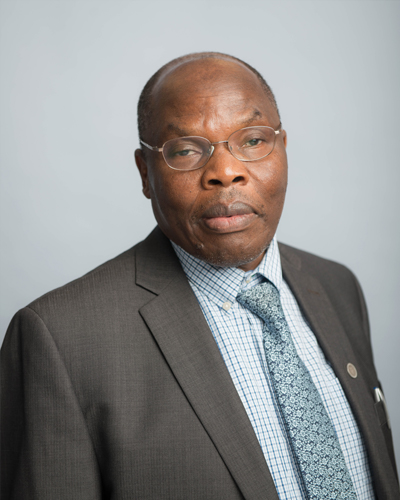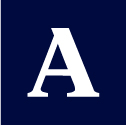DEPARTMENTAL TEACHING INNOVATIONS
Guided by the UN Sustainable Development Goal #4: To ensure inclusive and equitable quality education and promote lifelong learning opportunities for all, UBC in collaboration with Kenyan and Canadian universities as well as Education-based NGOs, codeveloped two Refugee Teacher Education programs in Dadaab Refugee Camp complex in North-Eastern Kenya.
Introduction
Background
- Dadaab Refugee Camp has been in existence since 1991; many original refugees are still in residence 32 years later.
- The Camp is comprised of 5 refugee camps, Ifo I, Ifo II, Dagahaley, Kambios and Hagadera, covering over 50 square kilometers.
- In December 2011, there were nearly 440,000 refugees living at Dadaab. It was then the world’s largest refugee camp.
- 55% of the residents are under the age of 18. A large number of youths in the camps have never experienced life outside the refugee camps.
A Typical School and a Class
In 2009, when UBC and partners were contemplating the teacher education program, the Camp consisted of:
- 27 primary schools with a population of 38,000+ students
- 7 secondary schools with a population of 3,000+ students.
- approximately 700+ teachers with most having no teacher education/preparation.
- Teachers were mostly former students who attended the Dadaab schools.
Due to the above, the Dadaab became a case that required humanitarian attention from world education institutions such as UBC.
The Beginning of UBC Connection
- In mid 2008, UBC President received a proposal from the Director of Windle Trust, Kenya (WTK), an NGO, requesting UBC’s assistance in improving the quality of education of teachers in Dadaab refugee camp schools.
- It was considered important to involve a local Kenyan University in our approach to understanding the problem and any subsequent humanitarian action.
- Thus, Moi University was the appropriate institutional choice given that a key scholar in Education the university was a PhD alumni.
- This was followed by a MOU between Moi University and UBC, signing of which enabled our joint team to visit Dadaab refugee camp schools to assess the need and agree on the way forward.
- During this time another Canadian University, York University and another Kenyan University, Kenyatta University, were exploring the same issue in the refugee camps.
- We therefore came together as a group, Canadian-Kenya universities and NGO, to plan a humanitarian-based education program.
- Hence it was agreed that UBC/Moi group would focus on Diploma in Teacher Education – Secondary and the York/Kenyatta group would focus on developing the Diploma in Teacher Education – Primary (Elementary).
Coincidentally, there was a call for proposals for development projects involving North-South collaboration by then CIDA or currently Global Affairs Canada (GAC). This was a great opportunity for the five institutions to collaborate in developing and implementing this worthy project. With York University as the lead institution, we were successful in securing C$4.5M. With our joint in-kind contribution of C$1.5M, we had a total of C$6M to put towards the project.
Admission Criteria
Given where Dadaab refugee camps are located, the host community faces similar teacher staffing challenges. Those who teach in schools within the host community also have no training and therefore, it was agreed that 75% of the intake come from the refugee community and 25% come from the host community. Also, we emphasised that the percentage of female candidates be increased as they were rare in the refugee community. Nonetheless, the few candidates who were available were recruited.
Outcomes:
- becoming leaders in their communities,
- creating opportunities for developing a new generation of young people https://teach.educ.ubc.ca/dadaab-secondary-teacher-education-program-alumnus-opens-school-in-somalia/
- providing the needed leadership in Somalia and elsewhere in the world. Yet the need for more qualified teachers continues
- Promoting peace – coexistence modeled through classroom discourses
- Increasing sensitivity to equality of men and women and access to education (working jointly with other stakeholders).
Dadaab Project websites

Living, Learning and Teaching
in Dadaab (LLTD)
Living, Learning and Teaching in Dadaab (LLTD) camps is a research project that aims at improving the academic welfare of refugee teachers in Dadaab. Dadaab Refugee Camp is located in sub Sahara Northeast Kenya and is the largest protracted refugee camp in the world. LLTD is a collaborative research project with The University of British Columbia (UBC), Moi University, Kenya, and NGO Windle Trust Kenya.

Dadaab Teacher Education Program
Dadaab Secondary Teacher Education is an important, unique educational and humanitarian endeavor underway in the Dadaab Refugee Camps in northeastern Kenya.
The University of British Columbia and Moi University (Eldoret, Kenya) are partnering to offer a Moi Diploma in Secondary Teacher Education. In addition to the university diploma program, we have an ongoing long-term research project around living, learning, and teaching in the camps, led by faculty members in the Department of Curriculum & Pedagogy.
Other Articles & Project Information

Kenya’s Dadaab Refugee Camp: Training teachers in one of the world’s largest & longest-running settlements
The collaborative program designed by UBC Faculty of Education with global partners has graduated 300+ teachers
Picture a refugee camp with a half a million people. Like a sprawling city of sorts, it houses four camps, including businesses, elementary and secondary schools, shopping centres, hotels and restaurants. That’s the Dadaab refugee camp of northeastern Kenya, a UNHCR base, and one of the largest such settlements in the world. More than half of its inhabitants are school-age children; most come from Somalia.

Secondary Teacher Education Diploma in Dadaab
The Dadaab project, Developing a Knowledge Creation and Research Mobilization Partnership for Studying Teacher Learning within a Refugee Camp, was awarded the UBC Hampton Partnership Development Grant of $10,000. The proposal was submitted by Dr. Rita Irwin, Dr. Karen Meyer, Dr. Samson Nashon and Dr. Cynthia Nicol (Department of Curriculum & Pedagogy).

EDCP’s Donation to the Dadaab Project
EDCP is pleased to announce a contribution of $5,000 towards the Transportation Initiative for the Dadaab project. The Faculty of Education is aiming to raise at least $30,000 to cover the costs of transportation and lunches for the coming school year for students enrolled in our program. Dadaab Secondary Teacher Education is an important educational and humanitarian endeavor underway in the Dadaab Refugee Camps in northeastern Kenya.

Faculty-wide Project Brings Secondary Teacher
Education Program to Refugees in Dadaab
In the past few years, hundreds of thousands of refugees have been displaced around the globe, with the Syrian refugee crisis providing the most recent example. As people leave their homes and migrate to a different country, most face an array of ongoing hardships and challenges in accessing basic services, including education.

Educators in Dadaab are “Engines of Change”
Educators in the in the Teacher Education Diploma Program in Dadaab, Kenya sent their thanks to students at Westside Montessori Academy Summer Camp who made bookmarks to help them study that were hand delivered to Dadaab by UBC course facilitator and doctoral candidate, Hezron Onditi. (Read full story)
These educators have been working with Hezron Onditi as they engage with the topics and activities designed for EPSE 171 Adolescent Development for Teachers.

Dadaab Secondary Teacher Education Program Alumnus Opens School in Somalia
Originally from Somalia, Jama Ahmed Mohamed has lived in the Dadaab refugee camp in Kenya for over 26 years. In 2016, he graduated from the UBC-Moi University Dadaab Secondary Teacher Education Diploma Program in the science cohort. Now a teacher in the Dadaab settlement, Jama, a father of five, is also completing his bachelor degree in health and social science from Moi University.
Publications & Presentations

Dadaab Refugee Camp and the Story of Education
Meyer, K., Nicol, C., Hassan, M., Hussein, A., Bulle, M., Hussein, Ahmed., Nashon, S., Ali, A., Olow, M. & Maalim, S. 2018. In E. Hasabe-Ludt & C. Leggo (Eds.),Canadian Curriculum Studies: A Métissage of Inspiration/ Imagination/ Interconnection (pp. 257-265). Toronto: Canadian Scholars’ Press.
In this chapter, our research opens narrative and dialogical spaces based on stories and interpretations of living, learning, and teaching in Dadaab Refugee Camp in northeastern Kenya. Two questions guide its intent: How might “refugee” be inscribed in theorizing curriculum and its emphases? What do narratives of education among displaced peoples offer a global manifesto in curriculum theory?

Borderless Higher Education for Refugees
Lessons from the Dadaab Refugee Camps
Wenona Giles (Anthology Editor), Lorrie Miller (Anthology Editor)
*Winner of the 2022 CIES Jackie Kirk Outstanding Book Award
Higher education is increasingly recognized as crucial for the livelihoods of refugees and displaced populations caught in emergencies and protracted crises, to enable them to engage in contemporary, knowledge-based, global society. This book tells the story of the Borderless Higher Education for Refugees (BHER) project which delivers tuition-free university degree programs into two of the largest protracted refugee camps in the world, Dadaab and Kakuma in Kenya.

Reflections and questions on the faculty summer visit to Dadaab Refugee camp in North-Eastern Kenya
Drs. Samson Nashon, George Belliveau, Elizabeth Jordan, Joanne Melville, Lisa Loutzenheiser, Karen Meyer, Marina Milner-Bolotin & Cynthia Nicol
In the summer of 2011, a group of eight faculty members from the Faculty of Education at UBC (six of them are from EDCP) visited Dadaab Refugee camp in North-Eastern Kenya. As of September 2011, more than 400,000 refugees are residing in this camp and despite the dire need for education there are only six secondary schools in the camps. Moi University in Kenya, UBC Faculty of Education and Windle Trust Kenya are collaborating on providing a two-year diploma for Somali refugee teachers at the secondary level. This seminar will provide an opportunity to share experiences on the visit, to discuss issues and questions related to the project.





















